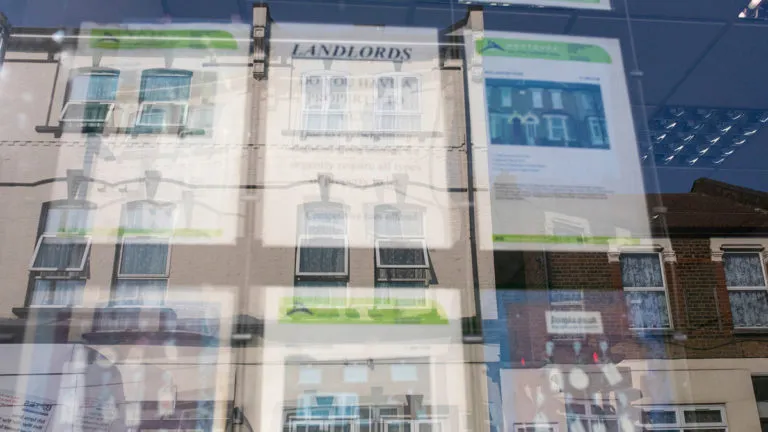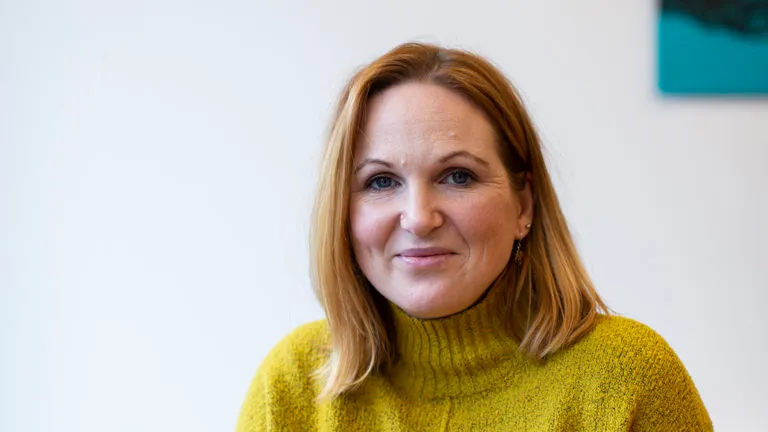No DSS: Amanda’s story
Published: by Guest blog

Discrimination against renters receiving housing benefit is rife. These so-called ‘No DSS’ policies are unfairly locking hundreds of thousands of people out of homes they could otherwise afford, often pushing them closer to homelessness.
We’re campaigning hard to end this discrimination, but we couldn’t do it without our supporters. That’s people like Amanda, who tells her story below and who joined the campaign after challenging – and ultimately winning against – the DSS discrimination she faced first-hand.
I wanted to share my personal take on Shelter’s current campaign against ‘No DSS.’ Initially this was a difficult thing for me to take on so publicly as I am mostly a proud person and not much of a sharer. However, I’ve come to realise I have nothing to be ashamed of – what needs to be realised is this could happen to anyone and it is not necessarily a result of failure, as some people may assume.
So, after my face being put out there (quite literally!) combined with the support I received, I’ve decided to take the bull by the horns!
My story
I’m a mum of three boys. In 2016, we came back to the UK from Australia to visit family on a holiday. It didn’t quite take the turn you’d expect on a family holiday when my then husband returned to Australia and I remained here with my three sons – then aged three, one and two months old – all of us living out of a suitcase.
Everything between then and now has been a battle. The divorce, selling our family home in Australia, child support, getting on the benefits system (having an asset we couldn’t access in Australia and being out of the country for so long adds complications), and subsequently finding housing. Needless to say it was a turbulent and expensive few years for us starting from scratch, but as most parents will understand – you just have to get on.
At first, it seemed finding somewhere to rent would be reasonably easy, and we secured a private rental without too much trouble. However, after living there for 18 months we received a section 21 notice because the landlord wanted to sell the property. This left us having to find our next home.
Living in a small village we’d settled well, found friends, and become part of a community. My oldest was in school, my second ready to start, and my youngest in preschool. I had a part time job at the school and we’d finally been successful in reaching a divorce, financial settlement, and were receiving child support.
Although I realised we may struggle to remain in the village, I was shocked at just how difficult it would all be. I engaged with the council, approached our MP, ticked all the boxes I needed to, joined Home-Link and started searching for private rentals in the area.
Searching for a home
When a private rental came up in my village I immediately got my hopes up. With a good rental history, references, my dad as guarantor, the ability to pay up front, being in the community already, and being a potentially long-term tenant, I didn’t anticipate being turned down.
I was shocked when I was turned down as a tenant, and even more shocked at being told that the reason for this was that the estate agent didn’t consider housing benefit to be a source of income. I argued that I was also working, in receipt of various other benefits, and had court ordered child maintenance, so had enough income to afford the property.
This apparently didn’t matter – and the viewing I’d already arranged was cancelled. It was made apparent they were not concerned about how much income or savings I had. Not even 12 months rent up front could tempt them.
There were further discussions to follow once I suggested this seemed unfair, and that was when other excuses were made; the landlord didn’t want a family in her home, the insurance wouldn’t allow a tenant on housing benefit – even though it turned out the insurance was secured through the estate agent – and more. The end result was that I was told we simply couldn’t live there.
I am proud of what I’ve overcome as a single parent family, challenging the preconception of people on housing benefit, mostly media driven; being seen as irresponsible, unreliable, vandals amongst other stereotypical views. I once had a career in criminal justice and a four-bed home in Australia, but a change in circumstances led me to become a single mum with three children under four years old. I was in the process of divorce, waiting for assets and funds (and ideally some sleep) for nearly two years.
Then Shelter stepped in. They took on my case as indirect discrimination, with the aim of having it going to court or for a public letter of apology from the estate agent in question to help strengthen their campaign against ‘No DSS’.

Finding our happy ending
I was made to feel ashamed and embarrassed by my situation, but I realise now that that’s wrong. I am now working again, for a homeless charity. My role as a housing adviser is to support people who have been left in an unfortunate position, helping them navigate their way to finding a home.
Many of these people are not as lucky as me; having family support, close friends, some savings, and good health. I’m very happy to say I am now in a secure home, in the same village with the same friends, a new partner, and an extended family in the mix.
Surely renting out your home should be based on individual merit, not on a preconceived notion.
I, and many others, see these ‘No DSS’ approaches to renting as discriminating, outdated, and rather primitive. It is not ok to say ‘no’ to someone and to deny them a basic need of housing just because they have fallen on hard times, are disabled, divorced, or have children. I’m not saying that every one of these people will always be perfect potential tenants, but it is a rather sweeping assumption to make to suggest that none of them would be.
Drop the mic…
(…And pick it back up, dust it off and put it away somewhere safely.)
How you can help
When the letting agent who turned Amanda down refused to budge, Shelter supported Amanda to take up a legal case against the agent. Amanda won an out-of-court settlement on the grounds of indirect discrimination, with the letting agent agreeing to write a public letter of apology and to pay £3,000 compensation plus the £10,000 legal costs. While Amanda’s case was ongoing, Shelter continued to advise her about her options, and she and the boys have now moved into secure social housing.
But thousands more families like Amanda’s are still facing DSS discrimination and are being prevented from renting privately. We must end this discrimination for good to make sure that everyone can access the housing that they need.
One of the worst offenders of this DSS Discrimination is OpenRent. As one of the largest online letting agents in the UK, they are preventing thousands of tenants from renting the properties available on their website – homes they could otherwise afford – simply because they receive housing benefit.
Shelter, along with tenants affected by DSS discrimination, are calling on OpenRent to end DSS discrimination on their website. Will you join us in telling OpenRent that we all deserve access to safe, affordable homes? Please read, sign, and share our open letter.